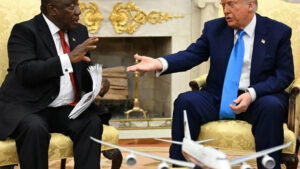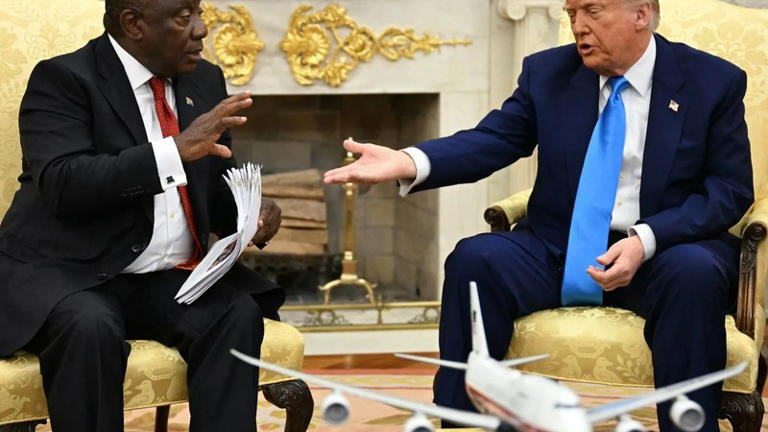From Washington to Luthuli House: South Africa’s Sovereignty and Succession in Focus

Introduction
South African politics remains unpredictable. Recently, international diplomacy clashed with local political ambitions. Interestingly, these events highlight Africa’s shifting global role, while also revealing potential leadership transitions within the ANC’s core structures.
Trump’s Unusual Requests
To begin with, U.S. President Donald Trump asked President Ramaphosa to bring golfers Ernie Els, Retief Goosen, and Gary Player to their meeting — a strange diplomatic condition, critics say.
Zungula’s Response
Consequently, ATM leader Vuyolwethu Zungula criticized Trump’s interference. He emphasized that no world leader, including Putin or Traoré, would tolerate such demands — questioning Ramaphosa’s acceptance of the request.
Ramaphosa’s Reaction
Surprisingly, Ramaphosa complied to some extent. He contacted Gary Player, who declined the trip. This revelation sparked public concern over how seriously African diplomacy is taken on the global stage.
Transition to ANC Politics
Meanwhile, back home, South Africa’s political ground is shifting. Notably, discussions within ANC corridors suggest Patrice Motsepe could emerge as a contender for the ruling party’s top position in 2027.
Why Motsepe?
Furthermore, Motsepe’s executive leadership at CAF and Mamelodi Sundowns demonstrates his organizational capability. His success in business and sports is now seen as valuable political capital among ANC stakeholders.
The Current Power Struggle
At the same time, other ANC leaders like Paul Mashatile and Fikile Mbalula are also positioning themselves. However, their early moves have invited scrutiny and mixed reactions from party members.
Motsepe’s Advantage
In contrast, Motsepe’s outsider status and clean record may work in his favor. Also, his financial independence limits his vulnerability to internal factional influence or patronage networks.
Public Perception Matters
Importantly, South Africans are watching closely. With growing political fatigue, citizens seem open to alternative leadership — especially someone with a reputation for competence, transparency, and effective results.
Conclusion
Ultimately, whether navigating foreign relations or internal succession, South Africa faces critical choices. Both global and domestic developments underscore the need for leadership rooted in respect, strategy, and national dignity.
Also Read:
Kim Jong Un Condemns ‘Serious Accident’ at North Korean Warship Launch


Leave a Reply